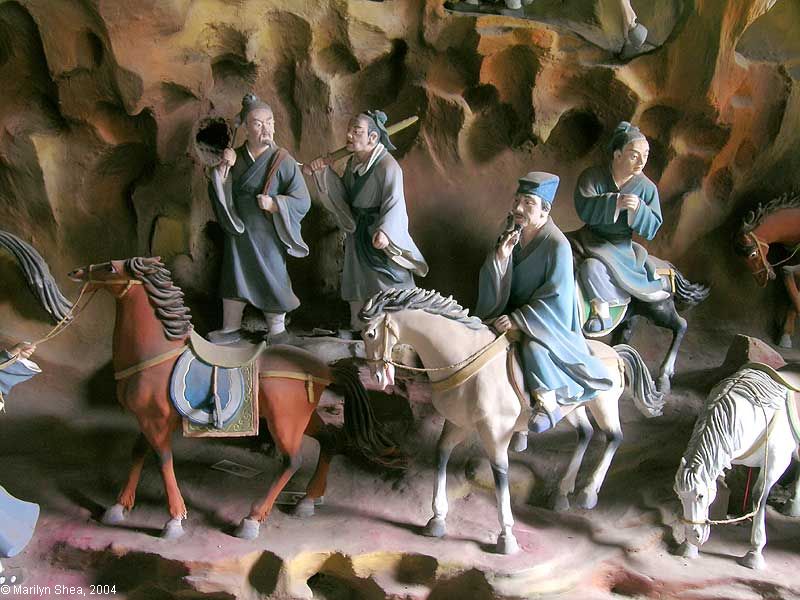Thence we went more than a hundred li to the southwest, through a mountainous country, on a winding road. There was a stony river, more than fifty li long, the banks of which were about a hundred feet high. The water in the river was clear and cold, and bubbled like sonorous jade. On the steep bank we saw a large kind of onion, three or four feet high. In the valleys splendid pine trees were growing, of more than a hundred feet in height. The mountains stretched to the west in a continuous chain, all covered with tall pine trees. We were five or six days travelling in these mountains, the road winding round the peaks. It was magnificent scenery, the slopes of the rocks covered with noble forests, with the river gliding through the depths below. On level places pines and birches were growing together. Then we ascended a high mountain which resembled a large rainbow, overlooking an abyss of several thousand feet deep. It was dreadful to look down to the lake in the depth.
On the 28th of the sixth month (July 18) we stopped to the east of the wu-li-do (ordo) of the empress. Chung lu (the adjutant) sent an express to announce our arrival, and the empress immediately sent an invitation to the master. We crossed a shallow river which flows to the north-east, the water of which came only up to the axle of the cart, and then entered the encampment. On the southern bank of the river there were more than a thousand carts and tents.
The Chinese princess and the princess of Hia both sent presents of millet and silver.
At this place eighty kin of flour cost fifty liang; for the flour is brought from beyond the Yin shan, a distance of more than 2000 li, on camels, by the Western barbarians. Although it was the hot season we had no flies in our tents. Wu-li-do (in Mongol) means in Chinese hing kung. Carts and tents had all a magnificent appearance, such as was unknown to the ancient Shan yu.
Continued ===>>>
pp. 57-58, E. Bretschneider's Mediæval Researches from Eastern Asiatic Sources. (New York: Barnes & Noble, 1888).
